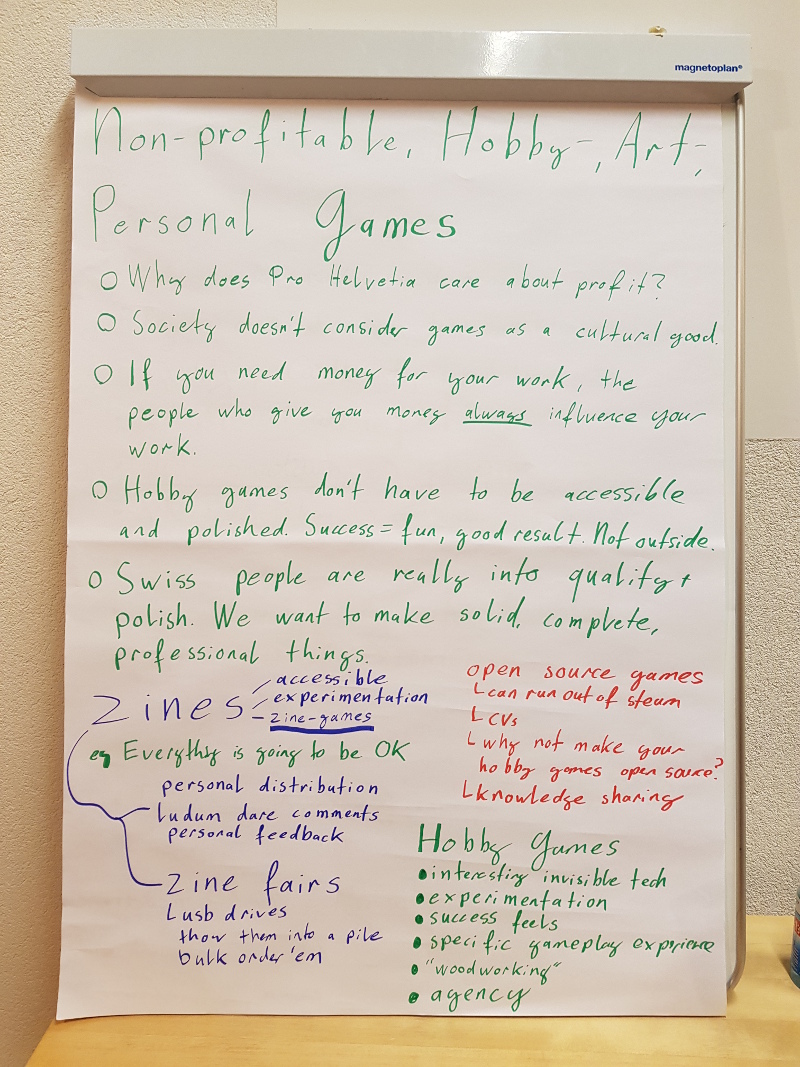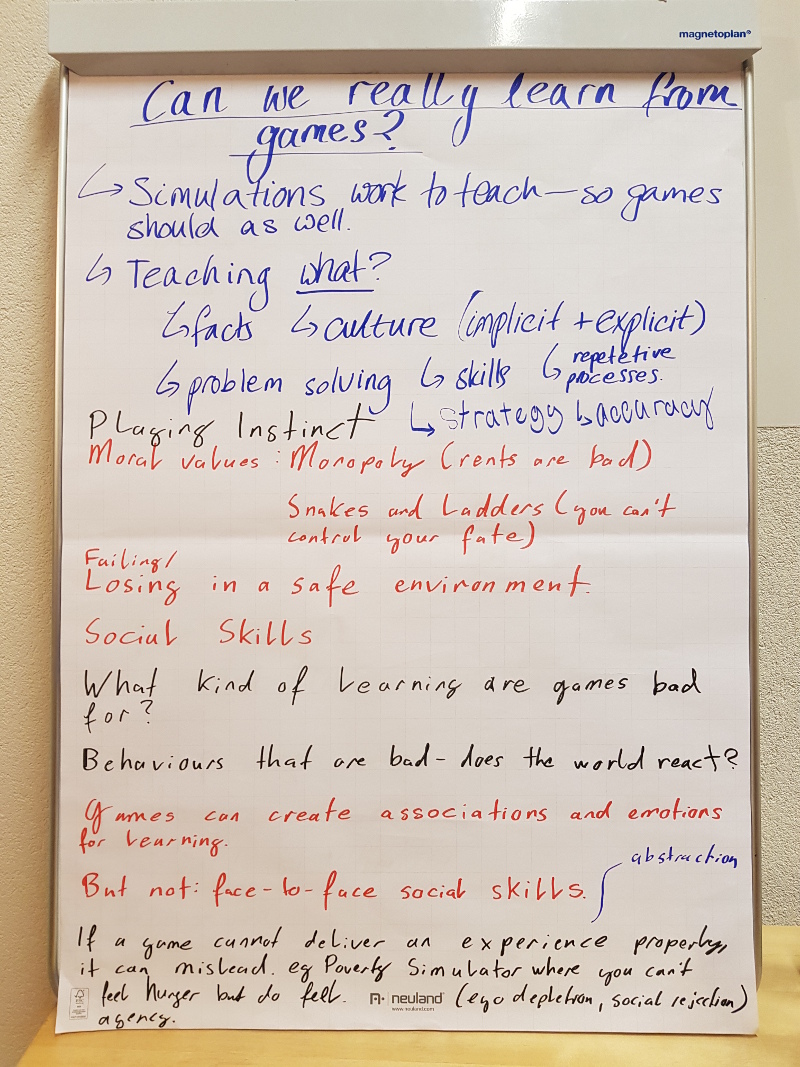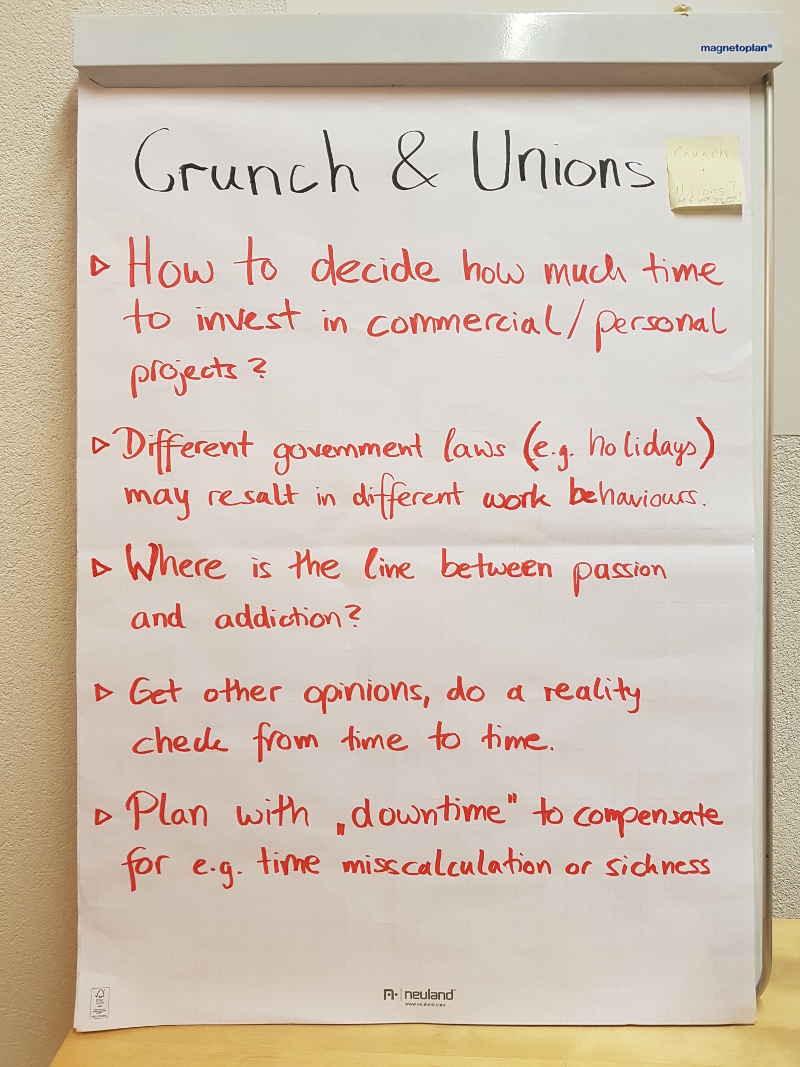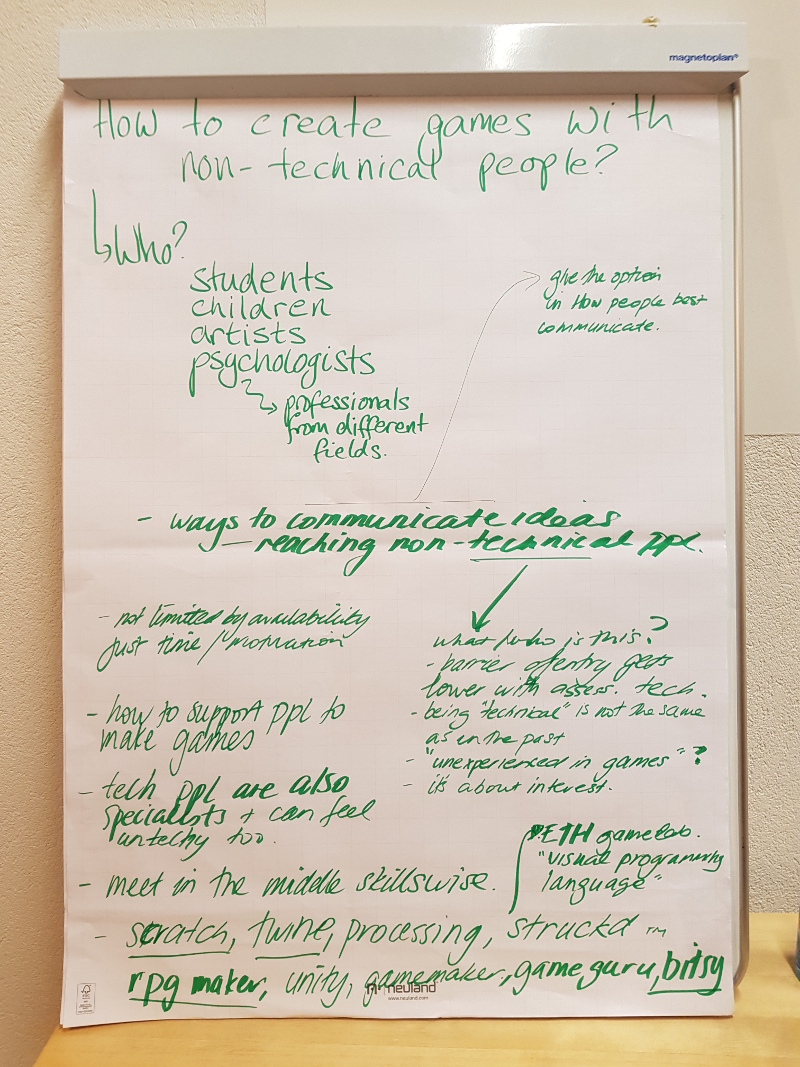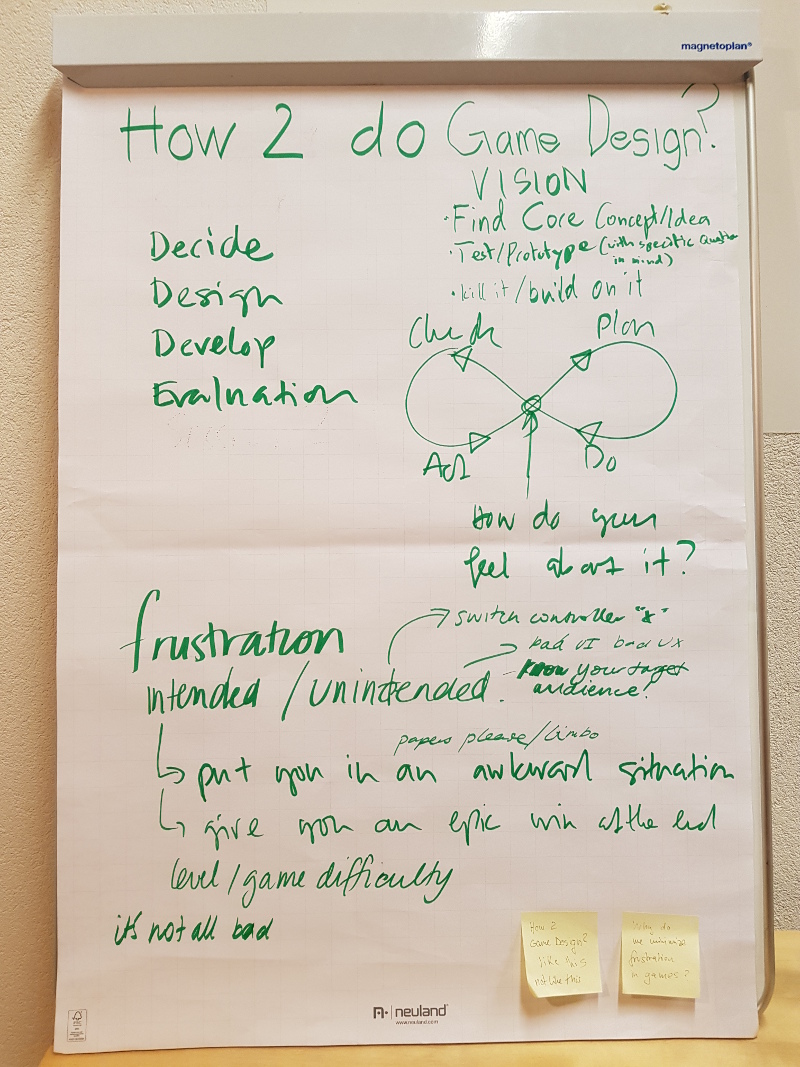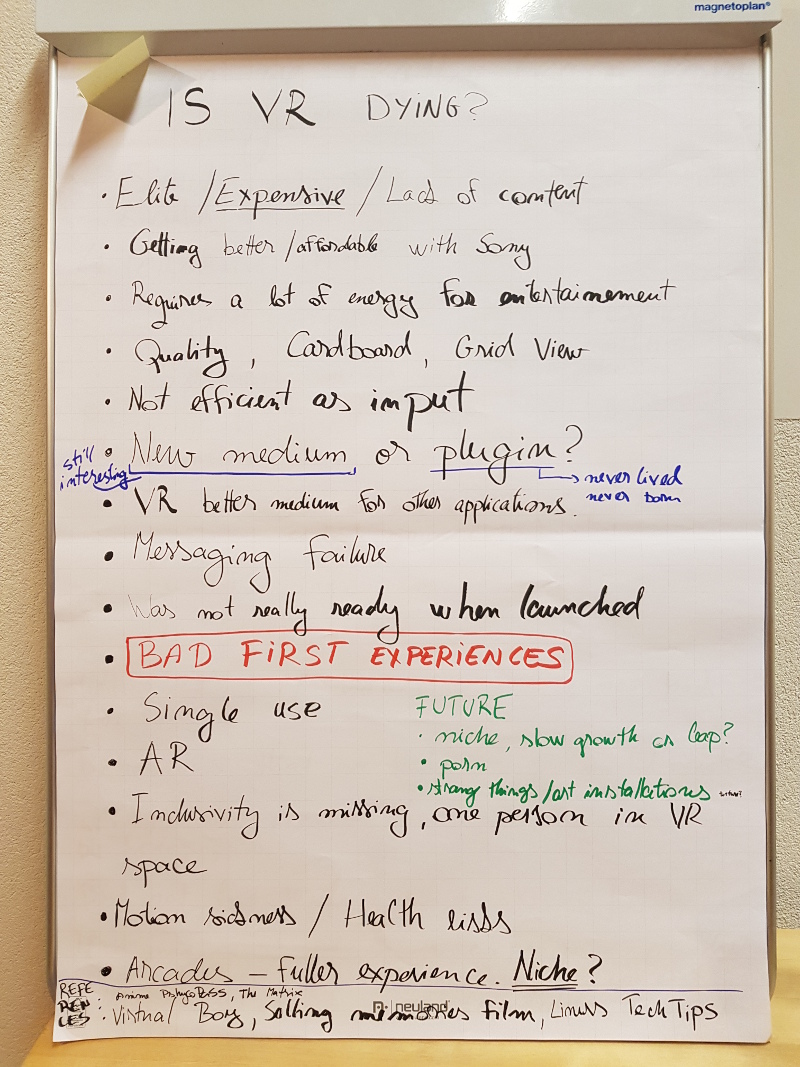Poster Transcriptions
Non-profitable, Hobby-, Art-, Personal Games
- Why does Pro Helvetia care about profit?
- Society doesn't consider games as a cultural good.
- If you need money for your work, the people who give you money always influence your work.
- Hobby games don't have to be accessible and polished. Success = fun, good result. Not outside world.
- Swiss people are really into quality and polish. We want to make complete, professional things.
Open Source Games
- Can run out of steam.
- CVs
- Why not make your hobby games open source?
- Knowledge sharing.
Hobby Games
- Interesting invisible tech
- Experimentation
- Success feels
- Specific gameplay experience
- "Woodworking"
- Agency
Zines
- Accessible
- Experimentation
- Zine-Games eg Everything is going to be OK
- Personal distribution
- Ludum dare comments, personal feedback
- Zine fairs - USB drives, throw them into a pile, bulk order them
Can we really learn from games?
Simulations work to teach - so games should as well.
Teaching what?
- Facts
- Culture (implicit + explicit)
- Problem solving
- Skills
- Repetitive processes
- Strategy
-
Accuracy
-
Playing Instinct
- Moral values: Monopoly (rents are bad), Snakes and Ladders (you can't control your fate)
- Failing in a safe environment
- Social skills
- What kind of learning are games bad for?
- Behaviours that are bad - does the world react?
- Games can create associations and emotions for learning.
- But not: face-to-face social skills.
- If a game cannot deliver an experience properly, it can mislead. e.g a Poverty Simulator where you can't feel hunger.
- Ego depletion
- Social rejection
- Agency
Crunch and Unions
- How to decide how much time to invest in commercial/personal projects?
- Different government laws (e.g holidays) may result in different work behaviours.
- Where is the line between passion and addiction?
- Get other opinions, do a reality check from time to time.
- Plan with "downtime" to compensate for e.g time miscalculation or sickness.
How to create games with non-technical people?
- Students
- Children
- Artists
- Psychologists
-
Professionals from different fields
-
Ways to communicate ideas
- Reaching non-technical people
- Not limited by availability, just time / motivation
- How to support people to make games
- Tech people are also specialists and can feel untechy too
-
Meet in the middle skillswise
-
Barrier of entry gets lower with assess. tech
- Being "technical" is not the same as in the past
- "unexperienced in games"?
-
it's about interest
-
Scratch, Twine, Processing, Struckd, RPG Maker, Unity, Gamemaker, Gameguru, bitsy
- ETH game lab visual programming language
How to do game design?
- Vision
- Find core concept/idea
- Test/prototype (with specific question in mind)
-
Kill it / build on it
-
Decide
- Design
- Develop
- Evaluate
Frustration
- Intended / Unintended
- Papers please / limbo
- Put you in an awkward situation
- Give you an epic win and the end level
- e.g switch controller "X"
- Know your target audience!
Is VR Dying?
- Elite / Expensive / Loads of content
- Getting better / affordable with Sony
- Requires a lot of energy for entertainment
- Quality, Cardboard, Grid View
- Not efficient as input
- New medium (still interesting) or plugin (never lived)
- VR better medium for other applications
- Messaging failure
- Was not ready when launched
- Bad First Experiences
- Single use
- AR
- Inclusivity is missing, one person in VR space
- Motion sickness / Health risks
- Arcades - Fuller experience. Niche?
Future
- Niche, slow growth on leap?
- Porn
- Strange things / art installations (Torture?)
References
- Virtual Boy
- Selling memories film
- The Matrix
- Anime: Psycho-Pass
Posters
